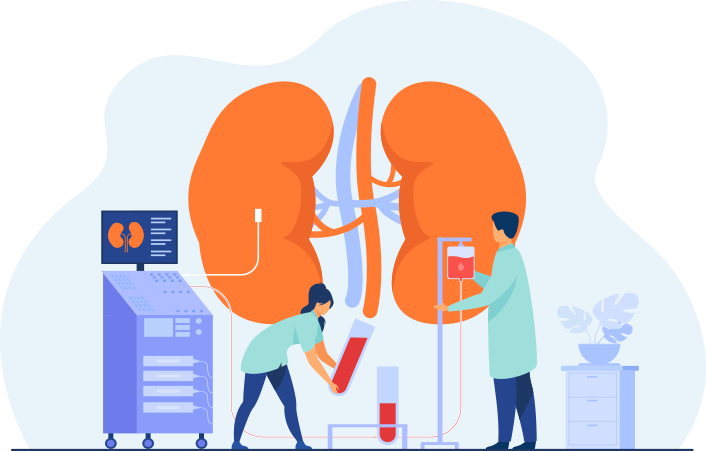Nephrologist Consultation
Symptoms: Chronic kidney disease, kidney stones, kidney infections, kidney cancer and nephrotic syndrome.
In a hurry? Request callback.

Symptoms: Chronic kidney disease, kidney stones, kidney infections, kidney cancer and nephrotic syndrome.
In a hurry? Request callback.










Kidneys play a pivotal role in maintaining overall health by filtering waste and excess fluids from the blood. Nephrologists are specialized medical professionals who focus on diagnosing and managing kidney-related conditions and disorders. This comprehensive guide aims to illuminate the role of a nephrologist in safeguarding kidney health and addresses common questions to empower you with knowledge for proactive kidney care.
A nephrologist is a medical doctor with specialized training in the intricate complexities of kidney function and diseases. They are experts in diagnosing and managing various kidney conditions, including chronic kidney disease, kidney stones, kidney infections, and disorders affecting electrolyte and fluid balance. Nephrologists also collaborate closely with other specialists to provide comprehensive care for patients with complex health needs.


Consulting a nephrologist is essential when you experience symptoms or have medical conditions that may affect kidney function. Consider seeking the expertise of a nephrologist if you encounter the following:
Nephrologists are instrumental in preserving kidney health and managing kidney-related conditions. With their specialized knowledge and expertise, they contribute to maintaining overall well-being and preventing complications. By understanding the role of a nephrologist and recognizing the signs that warrant consultation, you're empowered to take proactive steps toward optimal kidney health and a higher quality of life.